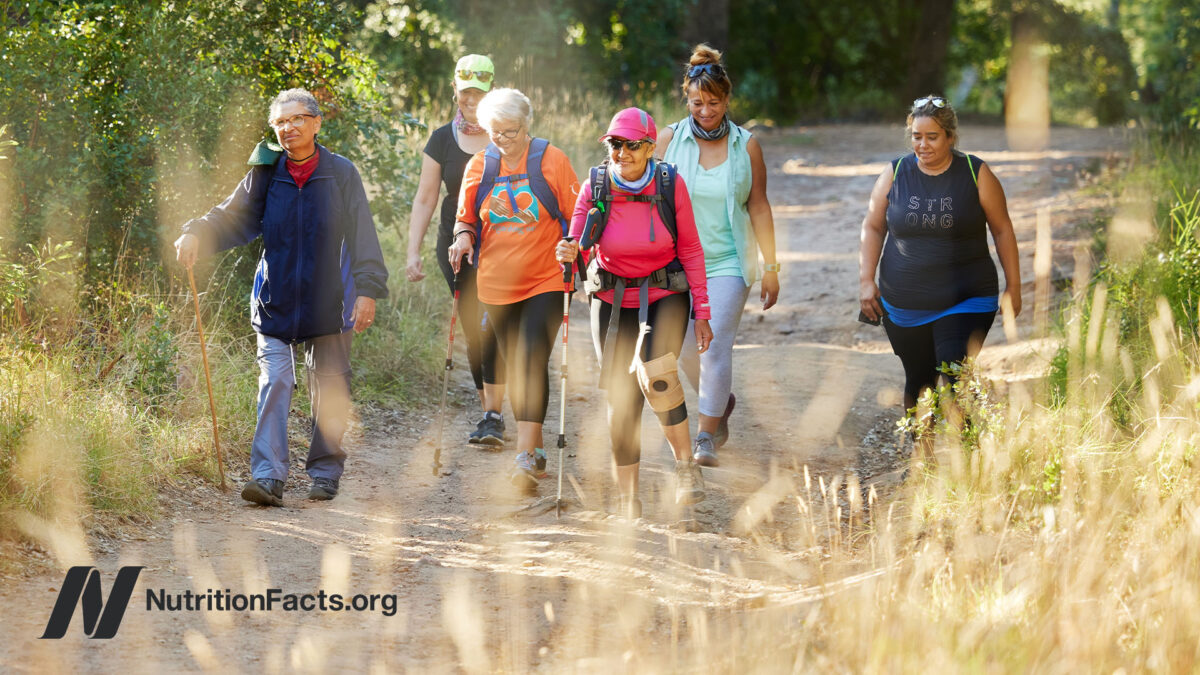
Longevity
A six-year study by the Centers for Disease Control and Prevention found three behaviors exerted enormous impact on longevity: not currently smoking, consuming a healthier diet, and moderately exercising at least 21 minutes a day. People with all three behaviors reduced their chances of dying in that time by 82 percent.
A similar study measured how much vitamin C subjects had in their bloodstreams, as vitamin C level was considered a good biomarker of plant food intake (and hence was used as a proxy for a healthy diet). The drop in mortality risk among those with healthier habits was equivalent to being 14 years younger.
The mitochondrial theory of aging suggests that free radical damage to our cells’ power source (mitochondria) leads to a loss of cellular energy and function over time. According to the theory, the resulting cellular damage is what essentially causes aging. Aging and disease have been thought of as the oxidation of the body, but eating antioxidant-rich foods may slow down this oxidant process. On average, plant foods may contain 64 times more antioxidants than animal foods. Including a variety of fruits, vegetables, herbs, and spices each meal continuously floods our body with antioxidants to help ward off stroke and other age-related diseases, promoting longevity.
Consuming fruits and veggies, and not smoking, has also been associated with longer protective telomeres, the caps on the tips of our chromosomes that keep DNA from unraveling. Each time our cells divide, a bit of that cap is lost. Telomeres can start shortening as soon as we’re born, and when they’re gone, we’re gone. The food we eat may impact how fast we lose our telomeres: Consumption of refined grains, soda, meat, and dairy has been linked to shortened telomeres, while fruit, vegetable, and other antioxidant-rich plant food intake has been associated with longer ones.
Sign up to our free How to Live Longer email series, which will give you some of the best information for boosting your longevity.
For substantiation of any statements of fact from the peer-reviewed medical literature, please see the associated videos below.
Popular Videos for Longevity


Is Longevity Genetic?
Based on a study of thousands of twin pairs, only about 25 percent of the...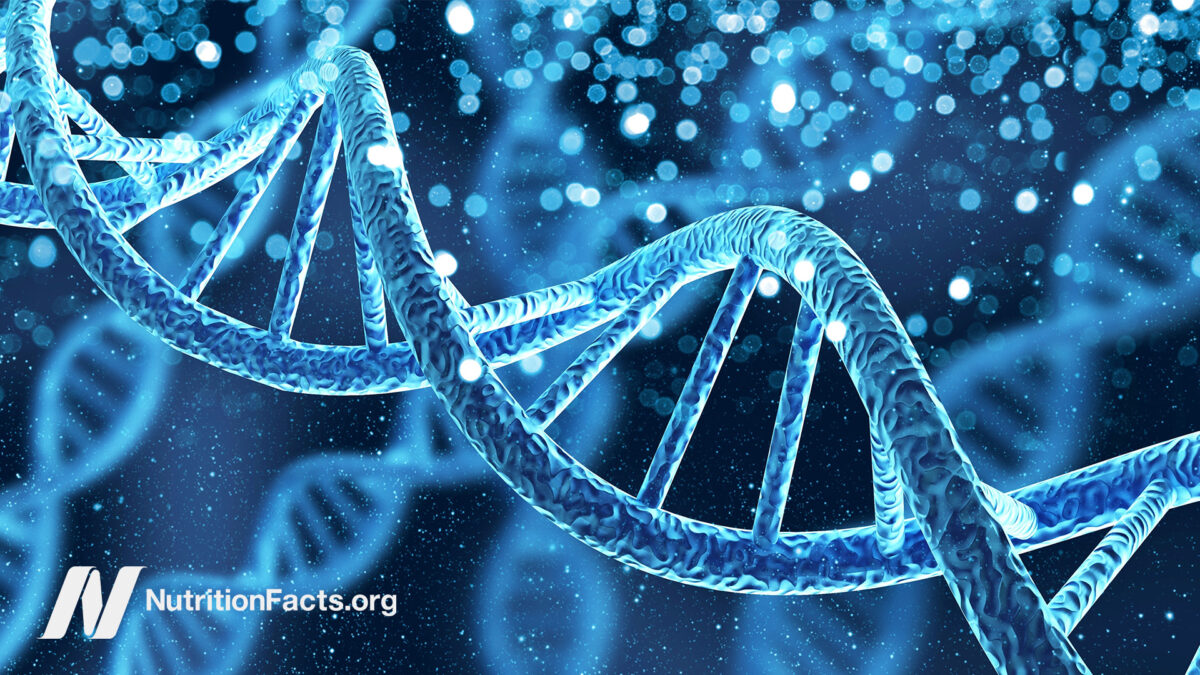
APOE—The Single Most Important Gene for Longevity
APOE is the primary cholesterol carrier in the brain and plays a major role in...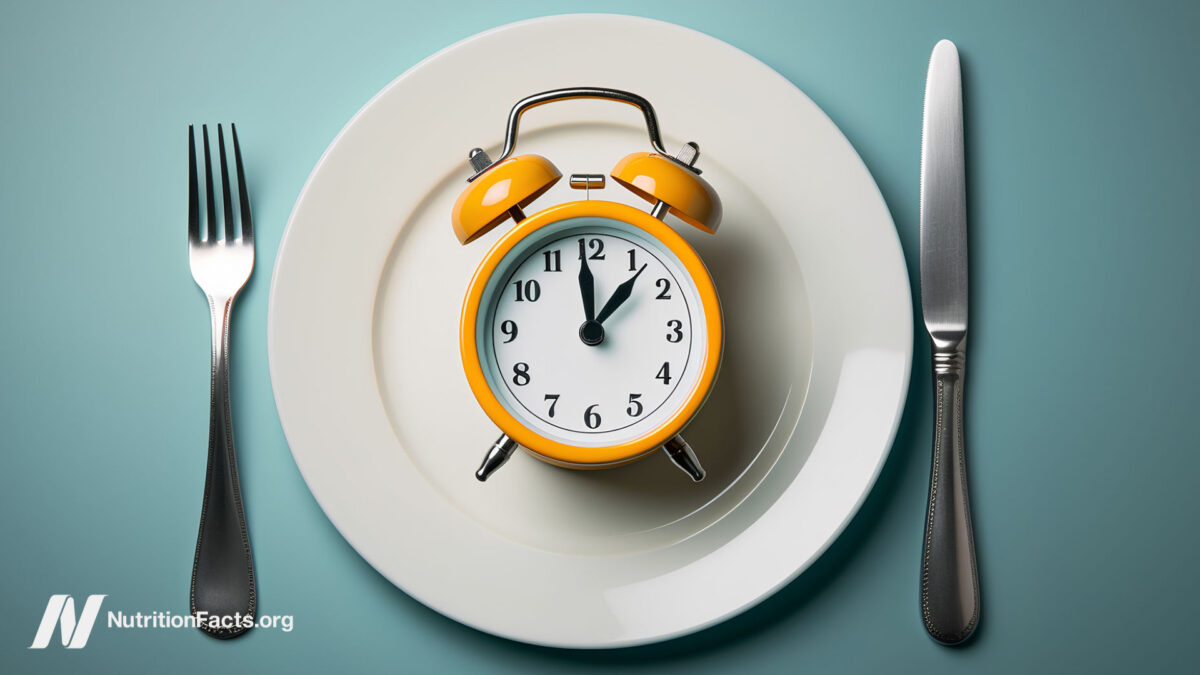
Diet and Caloric Restriction for Longevity—The Monkey Trials
How can we make sense of the disparate results from the four primate studies on...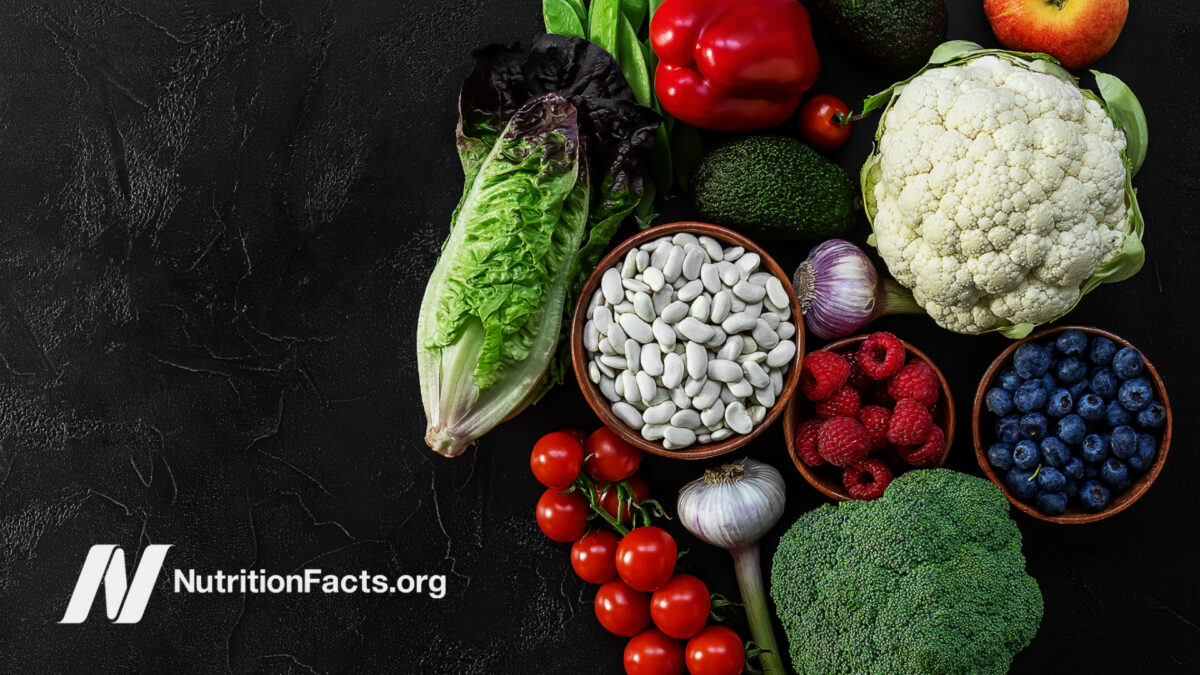
The Best Diet for Healthy Aging
Swapping just 1 percent of plant protein in place of animal protein was associated with...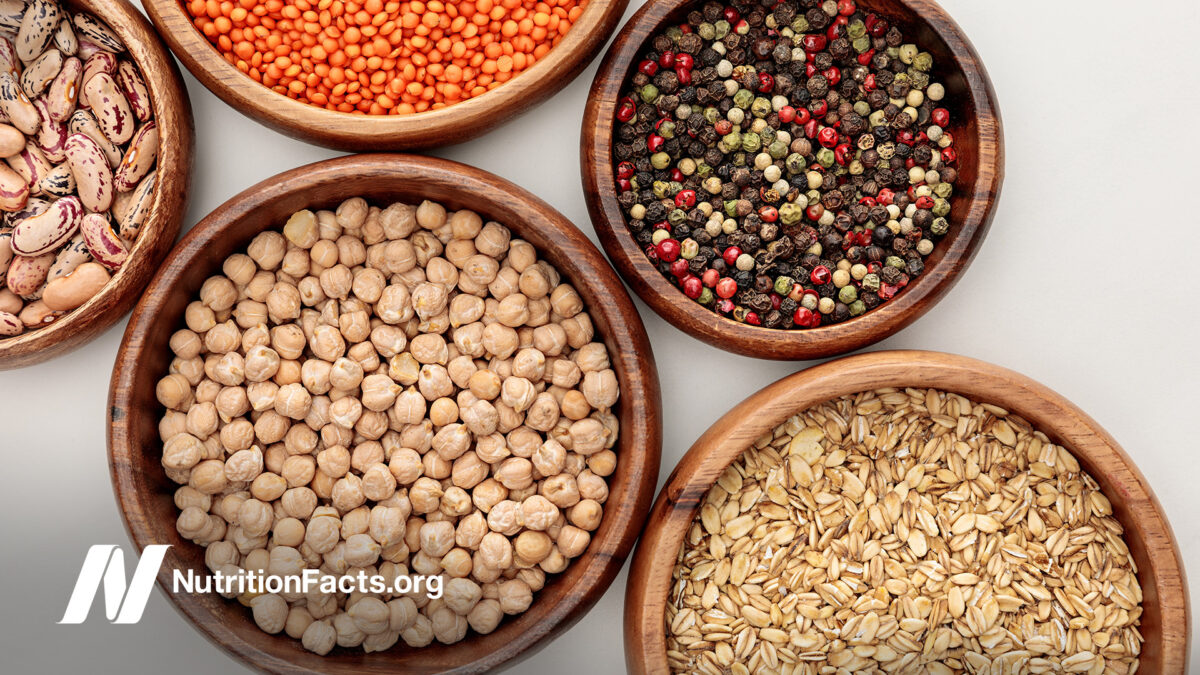
How to Boost FGF21 with Diet for Longevity
Fasting and exercise can boost the longevity hormone FGF21, but what can we eat—or avoid...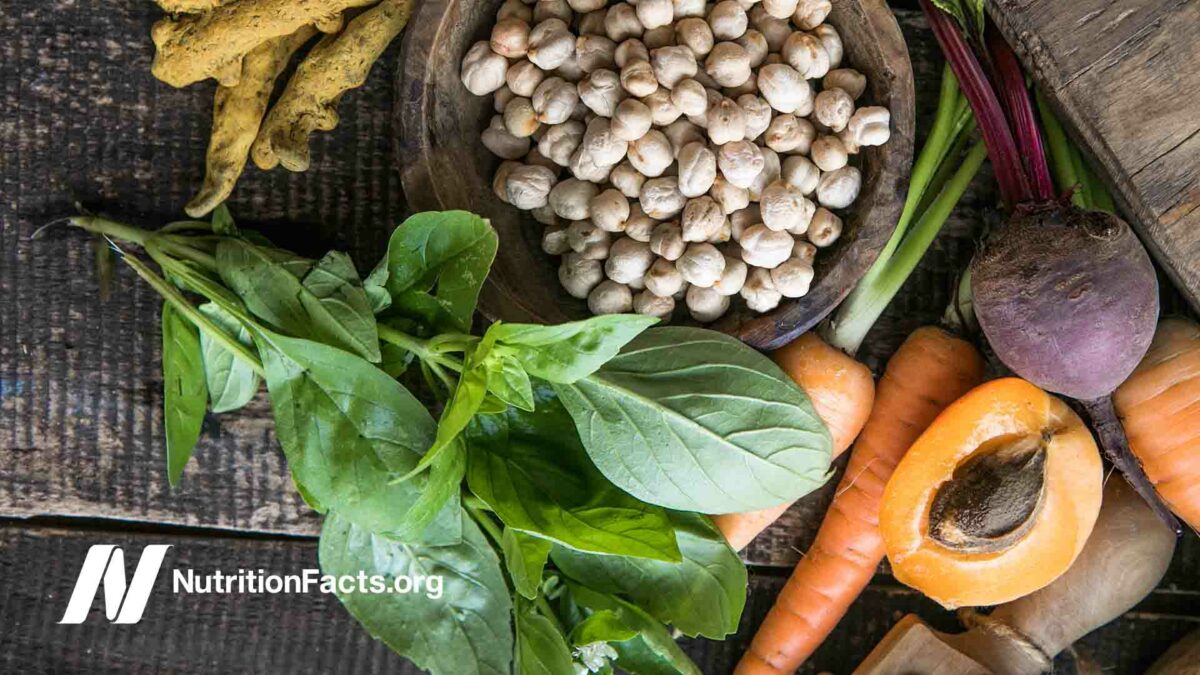
How to Increase Your Life Expectancy 12 to 14 Years
What can physicians do to promote healthy, life-extending, lifestyle changes?
Does Intermittent Fasting Increase Human Life Expectancy?
Alternate-day modified fasting is put to the test for lifespan extension.
The Benefits of Calorie Restriction for Longevity
Though a bane for dieters, a slower metabolism may actually be a good thing.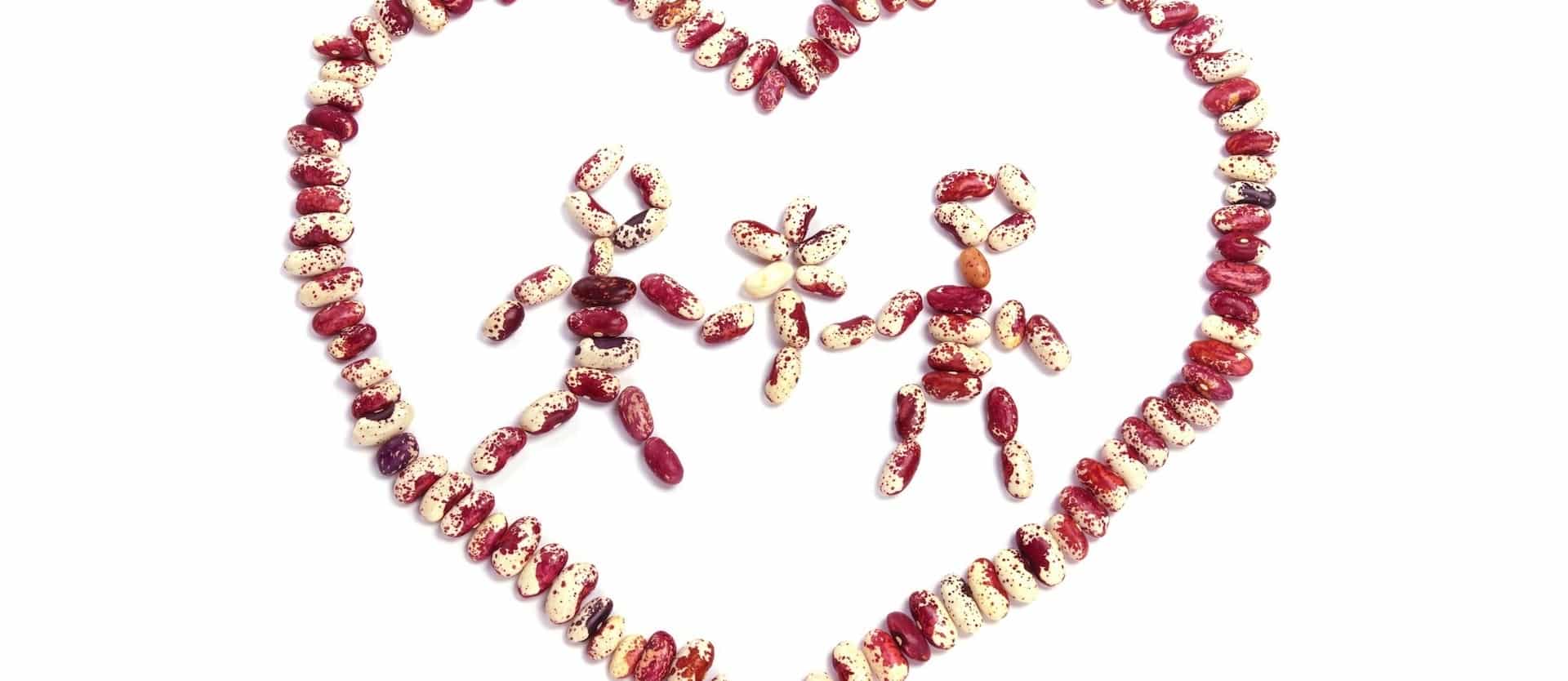
Increased Lifespan from Beans
The intake of legumes—beans, chickpeas, split peas, and lentils—may be the single most important dietary...
Caloric Restriction vs. Animal-Protein Restriction
The lifespan extension associated with dietary restriction may be due less to a reduction in...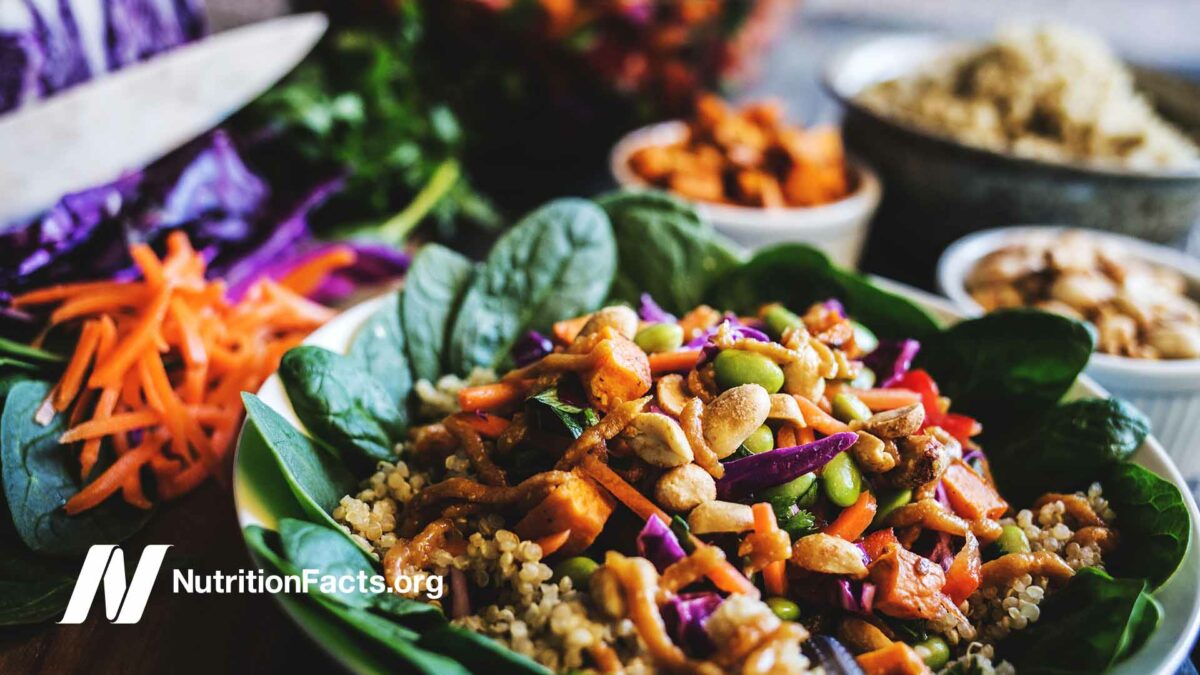
The Okinawa Diet: Living to 100
What would happen if you centered your diet around vegetables, the most nutrient-dense food group?
How to Prevent High Blood Pressure with Diet
High blood pressure, the #1 killer risk factor in the world, may be eliminated with...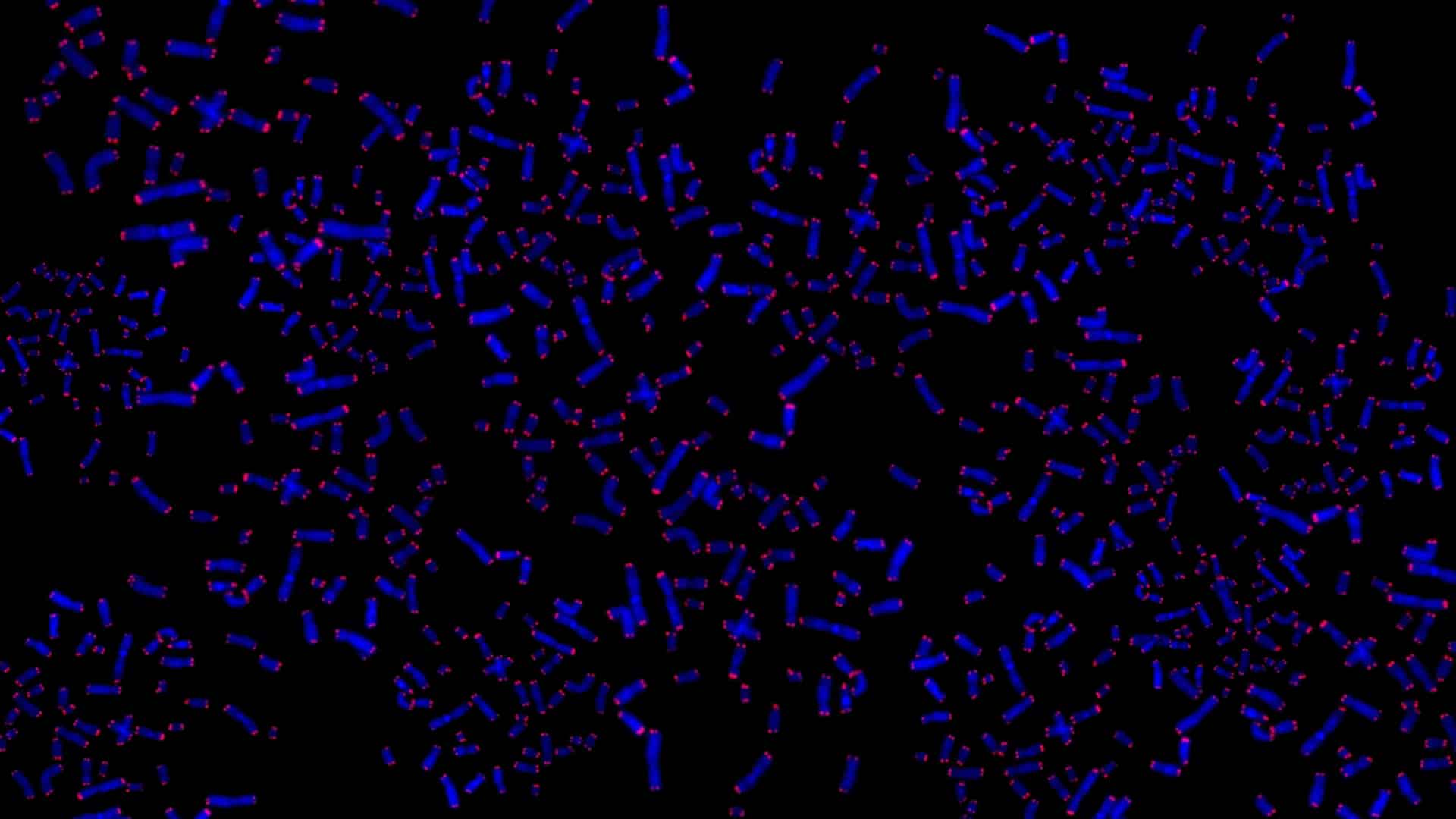
Telomeres: Cap It All Off with Diet
Is the reversal of cellular aging Dr. Dean Ornish demonstrated with lifestyle changes due to...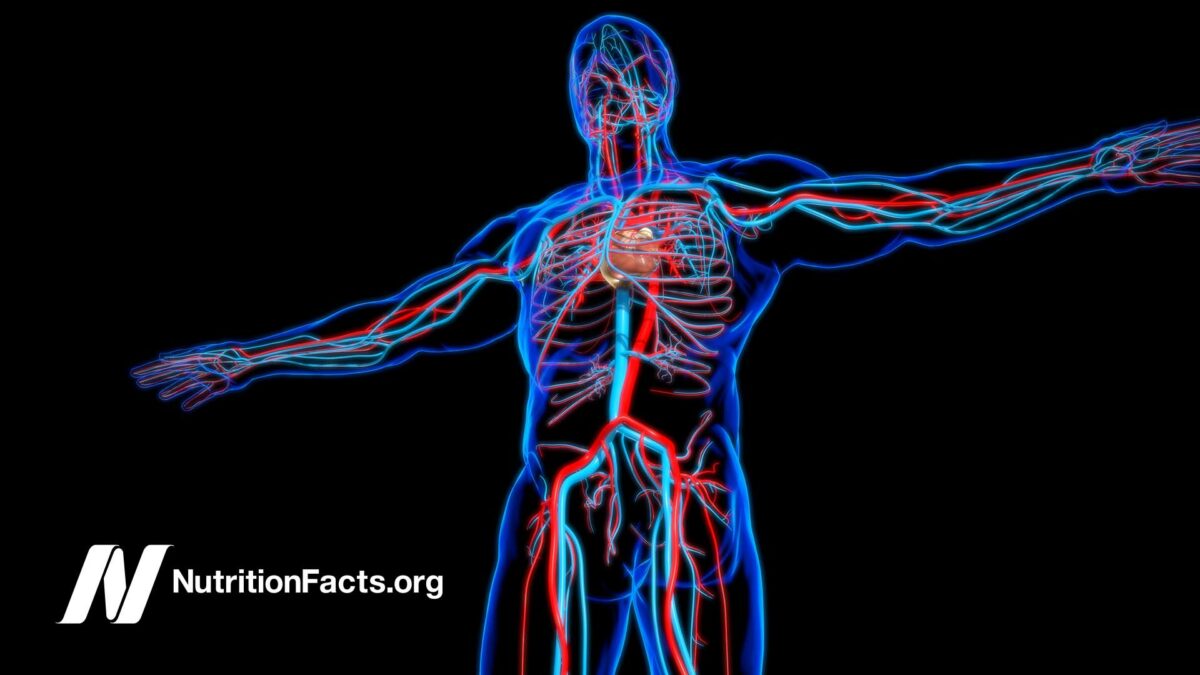
Survival of the Firmest: Erectile Dysfunction and Death
Because penile arteries are only about half the size of the coronary arteries in the...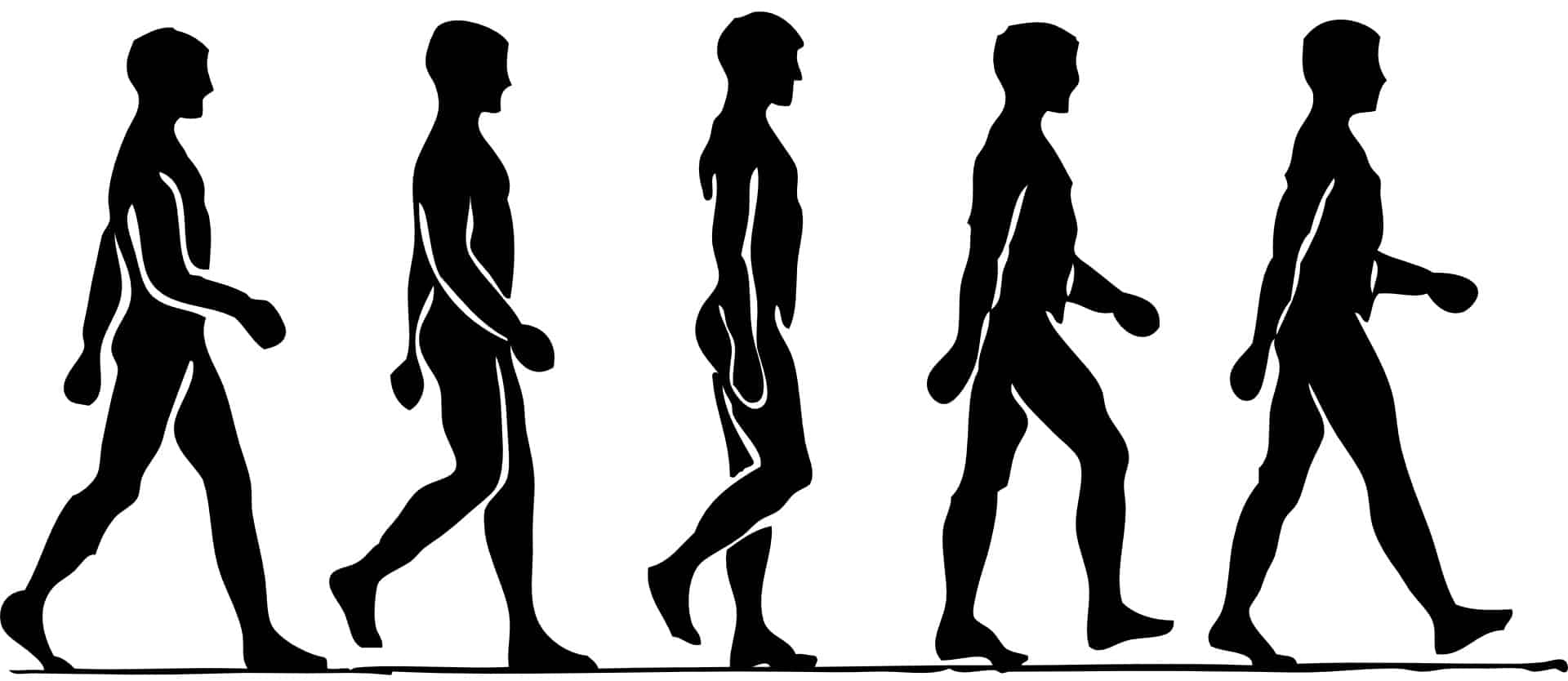
Longer Life Within Walking Distance
Researchers find exercise often works just as well as drugs for the treatment of heart...
Turning the Clock Back 14 Years
Four simple health behaviors may cut our risk of chronic disease by nearly 80%, potentially...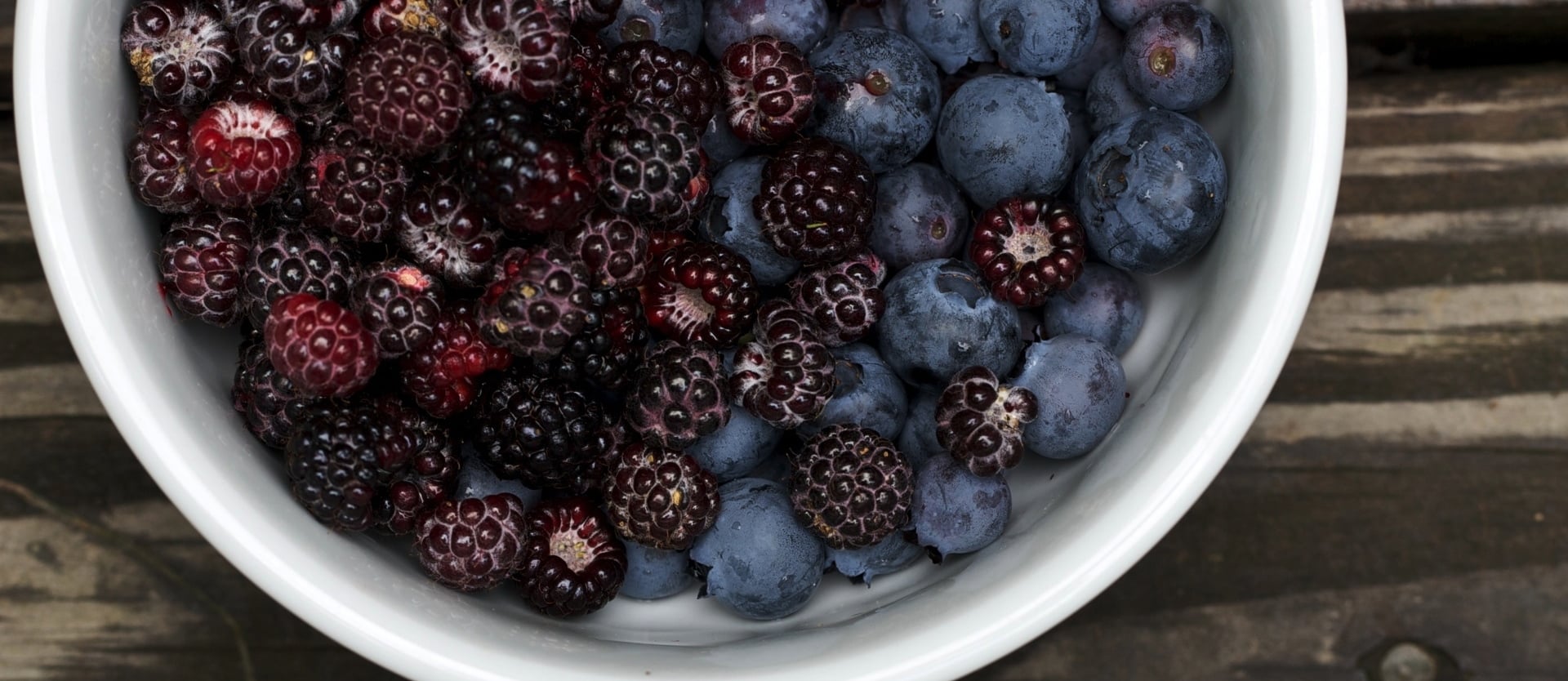
How to Slow Brain Aging by Two Years
The consumption of blueberries and strawberries is associated with delayed cognitive aging by as much...
Methionine Restriction as a Life-Extension Strategy
Plant-based diets may prove to be a useful nutrition strategy in both cancer growth control...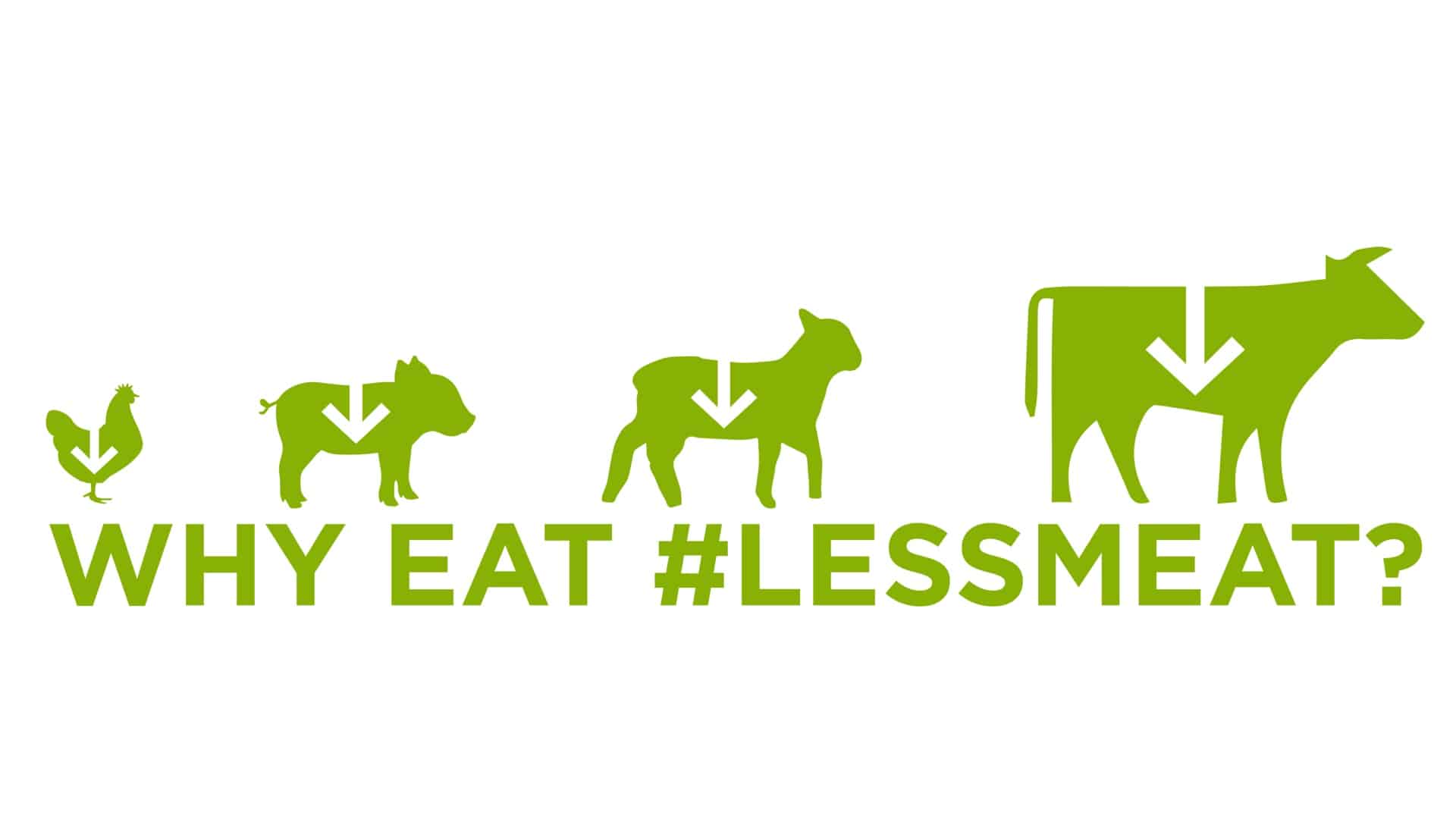
Do Flexitarians Live Longer?
Does just reducing one’s intake of meat, dairy, and eggs significantly reduce mortality?
Fruits, Veggies, and Longevity: How Many Minutes Per Mouthful?
The first study to gauge how much longer we live based on the number of...
How to Counter the Inflammation of Aging
What can we eat to combat “inflamm-aging,” the chronic low-grade inflammation that accompanies the aging...All Videos for Longevity
-

How to Get Enough Polyphenols for Life Extension
Is the link between flavonoid consumption and longevity cause-and-effect, and are all sources of flavonoids equally healthy?
-

The Effects of Hormesis from Low-Dose Radiation on Life Extension
Our bodies are exposed to about 20,000 hits of radiation from cosmic rays every second. Is that good or bad?
-

Risks and Benefits of Nicotinic Acid (NA), a NAD+ Booster
Given niacin’s decades of use as a cholesterol drug, we have a good idea of its safety profile.
-

Can NAD+ Boosters Increase Lifespan and Healthspan?
The effects of NAD+ boosters on aged rodents have been described in the medical literature as “profound,” “dramatic,” and “remarkable,” but do they help people?
-

Who Is Rescuing Whom? Pets and Life Extension
Do pet parents (or pawrents) live longer?
-

Melatonin Supplements for Sleep and Anti-Aging?
The secretion of melatonin appears to progressively decline with age, dropping as much as 70 percent between middle and older age.
-

Supplements for Sarcopenia (Age-Related Muscle Loss)
HMB, magnesium, omega 3s, and vitamin D are put to the test for muscle strength and function.
-

The Best Way to Boost NAD+: Supplements vs. Diet (webinar recording)
The pros and cons of all the NAD+ supplements and what are the ways to boost NAD+ naturally with diet and lifestyle?
-

Reversible Causes of Prematurely Graying Hair
Vitamin B12 deficiency is one of the rare, reversible causes of hair graying through some unknown mechanism.
-

Why Does Hair Turn Gray?
As with vitiligo in the skin, buildup of hydrogen peroxide kills the pigment cells in hair follicles.
-

Do Vitamin E Supplements Have Benefits for Cancer, Immunity, and Longevity?
Those who buy vitamin E supplements may in effect be paying to live a shorter life.
-

The Trade-Off Between Fertility and Longevity, and Causes of Precocious Puberty
A century ago, the age of first menstruation averaged as late as nearly 17. Why is sexual maturity coming so much earlier now?
-

How Generosity May Help You Be Happier and Live Longer
Donating time and money isn’t just good for the world, it may be good for our health.
-

Is Rapamycin a Universal Anti-Aging Drug?
Self-experimentation with the anti-aging drug rapamycin continues to be strongly discouraged.
-

How Much Exercise Is Too Much?
It may be prudent to limit chronic, vigorous exercise to no more than an hour a day and no more than five hours a week, taking at least one or two days off. For runners, the recommended upper limit for longevity benefits is 30 miles a week.
-

Does Exercise Extend Your Lifespan or Just Your Healthspan?
I was surprised by how much controversy is in the medical literature over whether the apparent longevity benefits of exercise are even real.
-

Exercise Is Medicine
The evidence supporting the overall health benefits of physical activity is overwhelming.
-

There’s a Fly in My Aging Research!
How do you unlock the mysteries of aging?
-

Does Astragalus Have Benefits for Life Extension and Fighting Cancer?
One of the most popular herbs in traditional Chinese medicine, astragalus root is marketed as a “life-prolonging” tonic.
-

The TAME Trial: Targeting Aging with Metformin
If you have diabetes, metformin can make things better, but if you don’t, the drug may make things worse.
-

Does Metformin Work as a Life-Extension Drug?
Amazingly, diabetics placed on metformin may live longer lives than those who never got diabetes in the first place.
-

Naturally Boosting AMPK with Exercise for Life Extension
AMPK is said to serve as a “mitochondrial guardian.”
-

Naturally Boosting AMPK with Caloric Restriction for Life Extension
Amping AMP-activated protein kinase is one of the anti-aging pathways I cover in my longevity book, How Not to Age.
-

Benefits and Side Effects of Glucosamine for Osteoarthritis
Billions are spent on glucosamine supplements every year. Do they work? Are they safe?
-

Green Tea as a Mouthwash for Halitosis (Bad Breath)
Green tea can help reduce plaque as much as the gold-standard chemical mouthwash without its side effects, but what about other aspects of oral health, such as bad breath?
-

Does Resveratrol Make You Live Longer?
Is the red wine molecule resveratrol responsible for the “French paradox”?
-

APOE—The Single Most Important Gene for Longevity
APOE is the primary cholesterol carrier in the brain and plays a major role in packaging and transporting LDL cholesterol throughout the body.
-

Is Longevity Genetic?
Based on a study of thousands of twin pairs, only about 25 percent of the difference in lifespan among people is genetically determined.
-

How to Delay the Age of Menopause with Diet and Lifestyle Factors
Approximately half of the variability of age of menopause among women is explained by genetics. What behaviors or circumstances can help explain the rest?
-

Why Do Milk Drinkers Live Shorter Lives on Average?
How might we reduce the risk of premature death from dairy consumption?
-

Can Getting Transfusions of Young Blood Slow Aging?
Ready for the mind-blowing twist in the mystery of why the injection of blood from young animals into old ones has a rejuvenative effect?
-

Parabiosis Experiments Prove Bloodborne Aging Factors
Macabre experiments surgically attaching old animals to young ones show there is something in the blood that causes aging.
-

Diet and Caloric Restriction for Longevity—The Monkey Trials
How can we make sense of the disparate results from the four primate studies on caloric restriction and lifespan?
-

The Side Effects of Human Growth Hormone as an Anti-Aging Therapy
Taking human growth hormone (somatotropin) may actually accelerate the aging process.
-

Do Vitamin D Supplements Help Prevent Diabetes, Cancer Mortality, and Overall Mortality?
Randomized interventional trials are necessary to establish cause-and-effect.
-

How Not To Age – Live Presentation
In this live lecture, Dr. Greger offers a sneak peek into his latest book, How Not to Age, a New York Times Best Seller.
-

Is It Possible to Reverse Aging and Live Forever?
Some animals, like the immortal jellyfish, can effectively live forever, so why can’t we?
-

Update on Vegetarian Stroke Risk
Those eating more plant-based diets have lower risk of having a stroke, including both bleeding and clotting strokes.
-

Dietary Sources of the “Longevity Vitamin” Ergothioneine
It may be even more important to include mushrooms (or tempeh) in our diet as we age.
-

Book Trailer for How Not to Age
Learn about my newest book, How Not to Age, a New York Times Best Seller.
